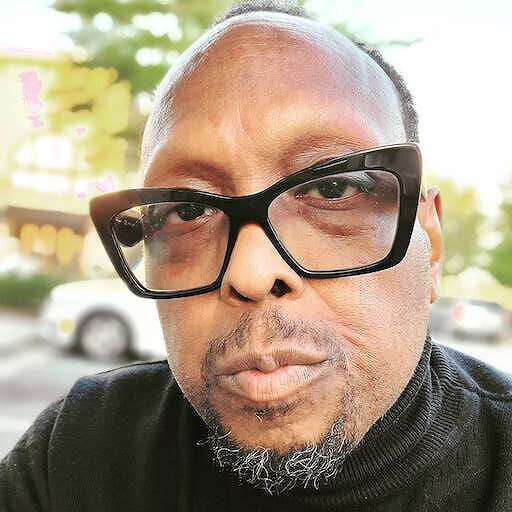Our Terms & Conditions | Our Privacy Policy
Beyond the recording studio: Musicians turned business moguls
By Megan Sayles
AFRO Staff Writer
msayles@afro.com
For generations, Black musicians have shaped American culture and entertainment— yet many have struggled to profit from their talent alone.
As a result, artists from gospel pioneers to hip-hop icons have redefined what it means to be a musician over time, capitalizing on their platforms to build business empires.
“It’s very difficult for artists to actually make money selling music. They’ve always had to do other things too,” said Mark Anthony Neal, an author and African and African American studies professor at Duke University. “Historically, it was taking your act on the road because artists make more money touring than selling records. Now, it’s become establishing a brand as a musician and expanding that brand to cover your business interests in order to make a living.”
 Mark Anthony Neal is an African and African American studies professor at Duke University. He is also the author of several books on Black pop culture and music. (Photo courtesy of Mark Anthony Neal)
Mark Anthony Neal is an African and African American studies professor at Duke University. He is also the author of several books on Black pop culture and music. (Photo courtesy of Mark Anthony Neal)
Neal has penned several books about Black pop music and culture, exploring their legacy and evolution throughout time. From his perspective, one of the most prominent examples of a Black musician who merged musical talent with business savvy is the late Thomas A. Dorsey.
Known as the “Father of Gospel Music,” Dorsey was a composer who blended sacred lyrics with blues music. The fusion was novel at the time, especially as many people associated the blues with the devil. But, Dorsey was also a successful businessman. In the 1930s, he founded the first Black-owned gospel music publishing company, Dorsey House of Music, selling his sheet music to Black churches and choirs.
Another example that stands out to Neal is acclaimed soul artist Sam Cooke, who started his own publishing company in 1959. This allowed Cooke to retain the rights of his songs and challenged the routine exploitation of Black artists by the music industry.
Neal believes today’s Black artists have a deeper understanding of the importance of building business ventures beyond music.
“Because they’ve seen so many stories of Black artists who, for whatever reason, weren’t savvy enough on the business side and found themselves in their 50s and 60s unable to make a living and sustain themselves, there’s a younger generation of artists that’s been so much more savvy— particularly with hip-hop,” said Neal.“I think every artist who gets involved in the business is very conscious that they can’t simply make a living by selling records or streaming music.”
Aside from his entertainment company Roc Nation, Shawn Carter, better-known as Jay-Z, has built a diverse empire that spans luxury beverages, fashion, sports management and technology investments.
 Jared Ball is a professor of communication and Africana studies at Morgan State University. He is also the author of the book,“The Myth and Propaganda of Black Buying Power.” (Photo courtesy of Jared Ball)
Jared Ball is a professor of communication and Africana studies at Morgan State University. He is also the author of the book,“The Myth and Propaganda of Black Buying Power.” (Photo courtesy of Jared Ball)
American rapper Nas owns QueensBridge Venture Partners, a venture capital firm that’s backed companies like Ring, Dropbox and Robinhood. Rihanna’s Fenty Beauty has become a billion-dollar beauty brand.
As more musicians find success in the business world, Neal cautioned that artists should not reduce the culture they create to a mere commercial product.
“Artists have to be savvy enough to know how to control the narrative of what is from the wellspring of Black cultural production as opposed to what is just being bought and sold,” said Neal. “Too many people now, including some young artists, treat Black culture as a commodity. They have to think through that because once it becomes commercial, it also becomes disposable.”
Though the growing trend of musicians becoming business moguls may be seen as progress, some see it as a response to deeper structural problems within the industry.
“The reason Black musicians look to expand into other areas of business is because they have already been exploited and thoroughly limited within the highly monopolized and politicized environments of the music industry,” said Jared Ball, professor of communication and Africana studies at Morgan State University. “Then, they go off and try to make up for that by extending their brand and making as much as they can off of it.”
But, Ball warned that even as Black artists branch out into business to gain more control over their careers and earnings, they often find themselves running up against the same structural barriers that limited them in the music industry.
He advocated for redistributing the profits of the music industry to better compensate the artists who create its value. This could include providing musicians with unions, health care and retirement benefits.
“Even down to the so-called ‘one-hit wonder,’ these artists are helping to produce billions of dollars for what is ultimately two to three companies on the ownership side of the music industry and two to three companies on the distribution side,” said Ball. “Instead of worrying about each individual, we should be advocating that labor be unionized, organized and better paid, protected and respected for the wealth that it produces.”
[ad_1]
Images are for reference only.Images and contents gathered automatic from google or 3rd party sources.All rights on the images and contents are with their legal original owners.
[ad_2]



Comments are closed.